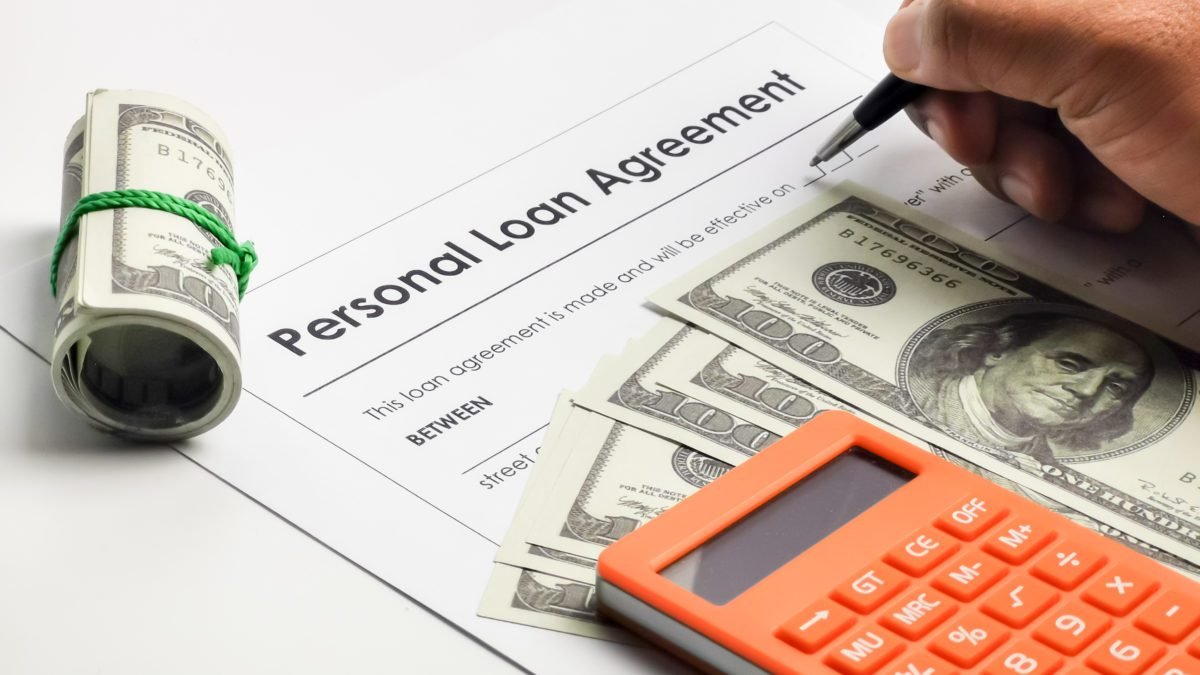
The Complete Guide to Customer Support
December 8, 2019
What is Copyright and How It Works
December 8, 2019What is a personal loan?
A personal loan is a type of unsecured loan that can help you in any financial crisis. You can spend funds gained from a personal loan in any way you like, from renovating your home to repairing your car.
Most individuals prefer personal loans over others since they allow you to use funds in any way you want.
Personal loans are unsecured in nature, meaning, you don’t have to place collateral or security in the form of an asset such as a house, car and etc. Due to this reason, interest rates of personal loans tend to be much higher than those of traditional secured loans.
Since personal loans are meant to be used by individuals and not businesses, the loan amount doesn’t exceed $100,000.
You may be required to make fixed or balance reducing monthly payments over a course of three to five years depending on the lender you work with.
Figure out why you need a personal loan
Why are you seeking a personal loan? Is it to renovate your house? Is it to repair your car? or is it for an event such as a wedding? Knowing exactly how the funds will be spent will help you narrow down potential lenders.
Not all lenders give you the freedom to use their funds in any way you like. Some lenders tend to limit or restrict the use of funds for certain purposes. For example, Payoff only allows funds to be used for credit card debt consolidation.
Figure out how much you need to borrow
Now that you know how you are going to use the funds from the loan, it’s time to decide just how much funds you really need.
Going back to the credit card debt consolidation example, you would need to borrow enough money to pay off the due balances in your credit cards as well as cover any origination fees of your loan.
If the funds are for a wedding, research on the associated costs and come up with a budget so that you can accurately decide how much funds you need.
Lenders usually have a minimum and maximum loan amount for personal loans. So if you know exactly how much money you need to borrow, you can easily select the lenders that meet your requirements.
SoFi is the best choice if you want to request a large loan amount. They offer up to $100,000 for personal loans. However, if you only require a small amount of money, try Upstart or Avant.
Consider your current financial situation
Since personal loans are unsecured, their interest rates tend to be higher than traditional secured loans. So are you confident about being able to make the monthly payments on time? If you are late on monthly payments, your personal credit score may start to decline.
If you already have several outstanding loans or if you are financially struggling with paying your bills, applying for a personal loan will only do more damage to your financials than good.
So either settle or negotiate the terms of your current debt before taking on new debt.
Benefits of personal loans
- You can actually use a personal loan to indirectly increase your credit score by making the monthly payments on time. The higher the credit score, the higher the credit limit and lower the interest rates will be.
- There isn’t much paperwork involved.
- Fast processing times. It usually takes less than a week for a lender to process your personal loan application, whereas a traditional bank loan may take much longer.
- Flexibility. Most personal loan lenders allow you to spend funds in whatever way you want, either for a holiday vacation with your family, backing the capital of your business and so on.
Eligibility criteria
Unlike traditional loans, the eligibility criteria for personal loans are simple and straightforward. Lenders would want to check your credit history and credit score to determine whether or not you are capable of making the monthly payments on time every time.
Since there is no collateral or security involved, your credit score is the only means of assurance a lender will have. Therefore, you would need a high credit score to get a personal loan.
Certain banks also look at your monthly income statements when deciding whether or not they should approve your personal loan. Each bank will have its own minimum monthly income requirement although the exact amount may differ from one bank to another.
Even if the lender approves your personal loan despite having a low credit score, the interest rates will probably be higher than usual since the lender is going out of their way to trust you.
Documents required to submit
You may have to submit all or some of the documents mentioned below to the lender when applying for a personal loan;
- Proof of identity such as a Social Security Number, National Identity Card Number, passport, driver’s license or your original birth certificate.
- Proof of address such as a utility bill issued within the last 6 months.
- Proof of employment and income such as a recent pay-stub, offer letter from your company, bank statements and etc.
- Personal bank account details.
Some lenders may ask for additional documents depending on their screening process such as proof of education in the form of a diploma or degree, and etc.
Fees associated with personal loans
In addition to interest rates, there are other fees associated with a typical personal loan such as;
- An application fee to cover the expenses incurred while processing the loan application such as credit report fees, man hours spent validating your application and etc.
- An origination fee or loan fee that’s charged upon receiving the approved funds. This is often a percentage of the total loan amount, usually between 1%-5%.
- A late payment fee that’s charged when you don’t make the monthly payments on time. Most lenders charge a flat-fee but some may set it to be a certain percentage of the payable monthly amount.
- A returned check fee that’s charged when your check gets bounced due to insufficient balance in your bank account.
- A prepayment fee that’s charged when you pay back a loan in full before the scheduled time. This fee is taken to compensate for the interest they lost with the remaining monthly payments.
Not all lenders charge every single fee listed above and the exact fee amount changes from one lender to another. A good lender will always be upfront about the fees.
Pre-qualify for personal loans
This lets you know what kind of terms you can expect with your current credit score, income and etc. Don’t worry, most online lenders will only perform a soft credit check so that your credit score wouldn’t get damaged.
A typical personal loan pre-qualification requires information such as your social security number, number of active loans, total monthly EMI for all outstanding debt, income, employer details, personal details and etc.
You may not pre-qualify for a personal loan due to one of the following reasons;
- Not having a high enough credit score.
- Insufficient monthly income to cover the loan EMI.
- Having a high debt-to-income ratio. In other words, if the majority of your income goes for other loan obligations.
- If your credit score and report has been pulled too many times in the recent months.
- This may be due to credit card stacking.
Credit score
Once you submit the required documents, the lender will perform a hard credit check on you to see whether you have a good credit history and how many active loans you currently have.
Processing times
Don’t expect to have your loan application processed the instant you submit the documents. Some lenders offer same day loan approvals, however, most of time it may take up to two weeks before you hear back from them.
To avoid confusion and stress, check the lender’s processing times through their website or contact them directly for more information.
Signing the personal loan agreement
Once you have submitted the personal loan application with all other required documents, the lender will start to review and process it.
Once you are approved, you will be given an in-depth outline of the loan and its terms in the form of a loan agreement. Make sure you review the terms carefully before signing it.
Check whether the lender requires automatic EMI withdrawals from your bank account. If so, be sure to set up a low balance alert on your account to avoid overdrafts.
Check whether the lender reports on-time payments to credit reporting agencies. If so, your credit score will improve but if not, choose a lender that does.
Finally, check whether the lender will let you choose a preferred date for due payments and whether they will let you skip a payment or make half-payments in times of financial hardships.
If all the terms check out, it’s time for you to sign the loan agreement. Once signed, there’s no turning back and you will be bound by law to adhere to the terms of the agreement.
Once the signed loan agreement is sent to the lender, they will disburse the funds to your personal bank account via direct deposit. This process may take a day or two but not more than that.
Things to consider before applying for a personal loan
Here are some things that you may need to consider before taking on a personal loan and getting yourself in more debt than you can handle.
- As mentioned above, the interest is not your only worry. You have to consider other costs such as the application fee, origination fee, late payment fee and etc before selecting or moving forward with a personal loan.
- Personal loan interest rates are much higher than the interest rates of traditional loans, starting from 11.5% to as much as %25. That’s not all. You have to do research on the nature of interest rates for each lender.
While some may offer fixed interest rates, others may offer a reducing balance interest rate where the interest payable reduces as you move through the months.
- Take on a personal loan only if its EMI or Equated Monthly Installment is within manageable limits. Make the payments on time to avoid late payment fees or accruing debt.
- Next, the repayment period. Generally, you will be given 60 months at max to pay off your personal loan. The shorter the repayment period, the lower the interest but the higher the EMI. Choose a lender that gives you the flexibility of choosing the preferred repayment period.
- The lender would perform a hard credit check on you before approving the loan. The number of active loans you have and their combined credit amount may directly impact their decision.
If you already have several outstanding debts, it may be wiser to not get a personal loan at least until some of the existing loans are settled. Even if they did approve your personal loan, you wouldn’t be able to pay off the EMI on time.
Conclusion
A personal loan can go a long way in helping you in a financial crisis. It’s unsecured in nature and the flexibility it gives you in using the loan funds makes it your best bet.
Do your research and investigate the interest rates and fees of several personal loan lenders before settling with one. Don’t borrow more money than you need because the higher the loan amount, the higher your EMI will be.
If you really need a large amount, make sure you get the lender to extend the repayment period so that the EMI will be lower. However, keep in mind that the longer your repayment period, the more interest you would have to pay.
Use a personal loan calculator to quickly estimate the monthly payment and the total interest to be paid for a personal loan by entering the loan amount, interest rate and repayment period (in years).





